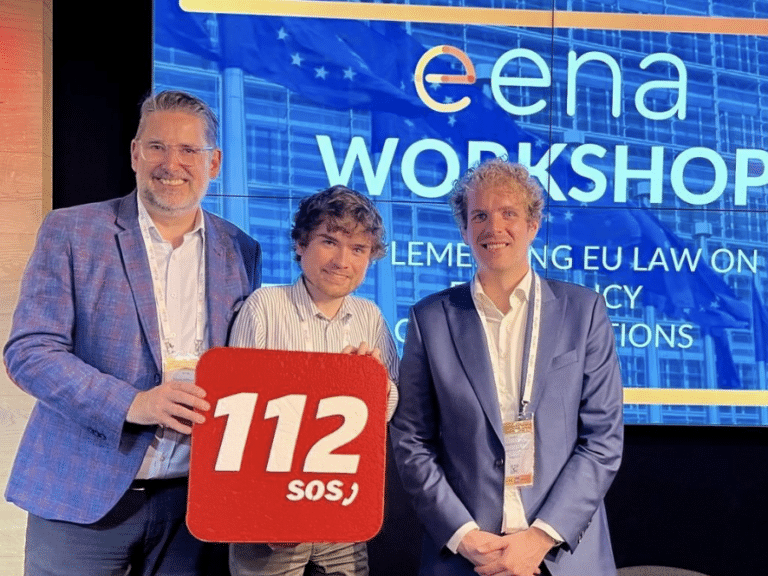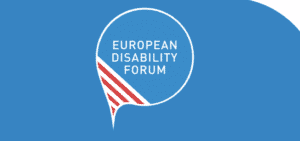On behalf of the European Union of the Deaf (EUD), Mr Mark Wheatley and Mr Alexandre Bloxs, respectively EUD Executive Director and Policy Manager, made significant contributions to the European Emergency Number Association (EENA) workshop titled “Implementing EU Law on Emergency Communications,” held in Brussels on September 19, 2023. This workshop was a critical platform for discussing the implementation of a delegated regulation adopted by the European Commission on December 16, 2022, which supplemented the European Electronic Communications Code. The regulation aimed at enhancing the functioning and handling of emergency communications in Europe.
During this event, the EUD played a pivotal role in advocating for the rights of deaf people. One of the primary focuses of EUD’s participation was to ensure that the implementation of the European Accessibility Act aligns with the principles of the Convention on the Rights of Persons with Disabilities (CRPD). This alignment emphasises the importance of accessibility in emergency communications for people with disabilities, particularly for the European deaf community.
EUD presented critical insights on making emergency services accessible for deaf people. The position of EUD centered on a “total conversation” approach in the directive, advocating for the inclusion of various technological options for contacting emergency services. These options include real-time text and video communication methods, enabling communication in the national sign language. This approach aligns with the broader objectives of ensuring fully accessible, multi-channel emergency services, which are crucial not only deaf people but also for anyone losing the ability to hear or speak after the occurrence of an accident.
In addition to accessibility issues, the workshop also touched on new technological advancements, such as Advanced Mobile Location (AML). This technology, already present in Android smartphones, can significantly enhance the accuracy and speed of emergency response by sending the caller’s coordinates to emergency services after a 112-call is made. EUD emphasised the importance of incorporating such technologies into legislation, advocating for mandatory provisions for Member States to equip their emergency services with these capabilities.
Our participation in this workshop reflects our continuous efforts to influence policy and legislative frameworks to ensure equality and accessibility for deaf people in all areas of life. The EENA is actively working on draft amendments to the directive, in cooperation with EUD and the European Disability Forum, aiming to include elements that promote accessibility and life-saving technologies in emergency communications. These amendments will be published per the negotiation timetable in the European Parliament and the Council.













